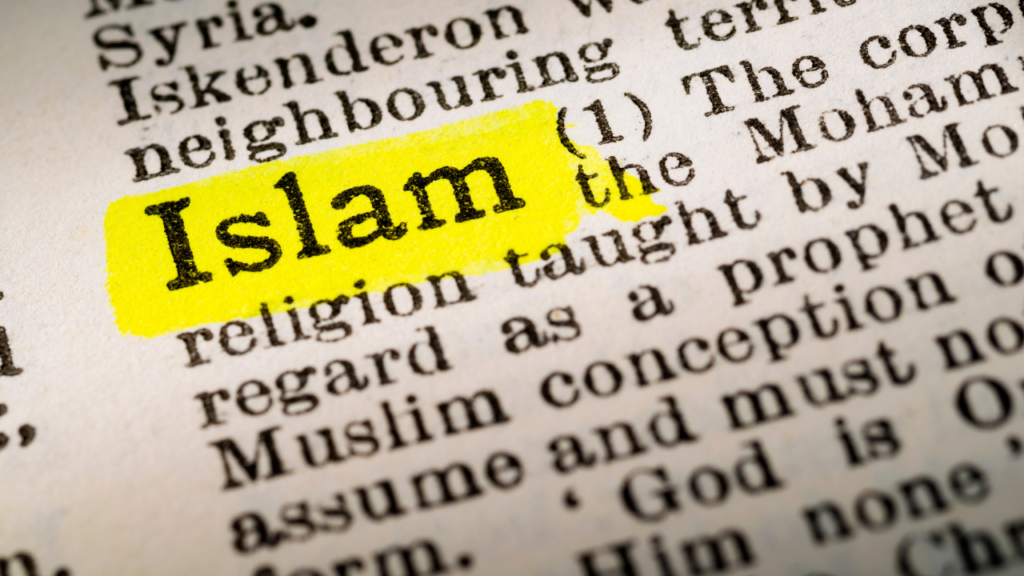What Do Judaism Christianity and Islam Have In common?
Uniting Three Faiths: Common Ground Among Judaism, Christianity, and Islam

What Do Judaism Christianity and Islam Have In common?
The commonalities between these three religions include belief in one God (monotheism), recognition of the Abrahamic covenant, reverence for holy scriptures, shared prophets and messengers, similar moral and ethical principles, practices of worship and prayer, and observance of various rituals and traditions.

Introduction
Judaism, Christianity, and Islam are three of the world’s major monotheistic religions, each with millions of adherents spread across the globe. While they have distinct beliefs, rituals, and histories, these Abrahamic religions share several commonalities that bind them together. In this article, we will explore the key aspects that unite Judaism, Christianity, and Islam, highlighting their shared heritage and values.
Monotheism
The most fundamental commonality among these three religions is the belief in the existence of one, all-powerful God. In Hebrew, this God is known as Yahweh (or Jehovah in some Christian traditions), in Christianity, God, and in Islam, Allah. This concept of monotheism sets them apart from many other belief systems and forms the core of their faith.
Also check.
- What Is The Third Pillar Of Islam?
- What Is The Fourth Pillar Of Islam?
- What To Say When Someone Dies In Islam
- What is Islamism?
- Why is Jerusalem Important to Islam?
The Abrahamic Covenant
All three religions trace their origins back to the prophet Abraham. According to their shared scriptures, God made a covenant, or sacred agreement, with Abraham. This covenant promised divine blessings and guidance to his descendants. In Judaism, it is seen as the promise of the land of Israel, in Christianity, it is fulfilled through the coming of Jesus Christ, and in Islam, it is part of the broader narrative of prophethood and divine guidance.
Holy Scriptures
Another significant commonality is their reverence for a set of holy scriptures that provide guidance and record their religious teachings. These scriptures include the Hebrew Bible (or Old Testament) in Judaism, the Christian Bible, and the Quran in Islam. While there are variations in the content and interpretation of these texts, they share many stories, themes, and moral lessons, further connecting the three faiths.
prophets and Messengers
Judaism, Christianity, and Islam all recognize and revere various prophets and messengers whom they believe were chosen by God to convey divine messages to humanity. For example, they share the belief in figures like Adam, Noah, Abraham, and Moses. In Christianity, Jesus is considered the central figure as both the Messiah and the Son of God. In Islam, the Prophet Muhammad is seen as the final and most significant prophet.
Moral and Ethical Principles
These religions share many moral and ethical principles, including the importance of compassion, justice, honesty, and care for the less fortunate. The Ten Commandments in Judaism and Christianity and similar moral guidelines in Islam emphasize these common values. The Golden Rule, which encourages treating others as one wishes to be treated, is another shared ethical concept among these faiths.
Worship and Prayer
While the rituals and forms of worship differ, all three religions emphasize the importance of regular prayer and worship as a means of connecting with the divine. Jews pray in synagogues, Christians in churches, and Muslims in mosques. These places of worship serve as centers for community and spiritual growth.
Rituals and Traditions
Although the specific rituals and traditions differ among these faiths, they all observe significant religious events and ceremonies. For example, Passover in Judaism, Christmas and Easter in Christianity, and Ramadan in Islam are occasions for communal celebration and reflection. Each religion also has specific rites of passage, such as circumcision, marriage ceremonies, and funeral practices.
Conclusion
Judaism, Christianity, and Islam may have distinct beliefs and practices, but they are bound together by a common heritage rooted in monotheism, shared scriptures, and a belief in the Abrahamic covenant. These three religions have played a significant role in shaping the moral and ethical framework of societies throughout history and continue to be influential forces in the modern world. Recognizing their commonalities can promote greater understanding and respect among their followers, fostering interfaith dialogue and cooperation.

FAQs
What are the commonalities between Judaism, Christianity, and Islam?
The commonalities between these three religions include belief in one God (monotheism), recognition of the Abrahamic covenant, reverence for holy scriptures, shared prophets and messengers, similar moral and ethical principles, practices of worship and prayer, and observance of various rituals and traditions.
Do all three religions believe in the same God?
While they use different names (Yahweh, God, Allah), Judaism, Christianity, and Islam all believe in the concept of one God who is all-powerful, transcendent, and the creator of the universe.
What is the Abrahamic covenant, and why is it significant?
The Abrahamic covenant is a sacred agreement or promise made by God to the prophet Abraham. It is significant because it forms the basis of the relationship between God and the descendants of Abraham in all three religions, outlining divine blessings and guidance.
Which holy scriptures are shared among these religions?
Shared holy scriptures include the Hebrew Bible (Old Testament) in Judaism, the Christian Bible (Old and New Testaments), and the Quran in Islam. While there are variations in content and interpretation, they contain many common stories and themes.
Who are some of the shared prophets and messengers in these religions?
Shared prophets and messengers include figures like Adam, Noah, Abraham, and Moses. In Christianity, Jesus is central as the Messiah and Son of God, while in Islam, the Prophet Muhammad is considered the final and most significant prophet.
What are some common moral and ethical principles among these faiths?
Shared moral principles include values like compassion, justice, honesty, and care for the less fortunate. The Ten Commandments in Judaism and Christianity, as well as similar moral guidelines in Islam, emphasize these common values.
How do these religions practice worship and prayer?
Worship practices differ among these faiths, with Jews praying in synagogues, Christians in churches, and Muslims in mosques. Regular prayer and communal worship are essential aspects of connecting with the divine.
What are some common rituals and traditions observed by these religions?
Common rituals and traditions include religious holidays and ceremonies. Examples include Passover in Judaism, Christmas and Easter in Christianity, and Ramadan in Islam. Each religion also has specific rites of passage, such as circumcision and marriage ceremonies.
Why is it important to recognize the commonalities among these religions?
Recognizing commonalities promotes understanding, respect, and tolerance among followers of different faiths. It fosters interfaith dialogue, cooperation, and peace-building efforts.
Are there any theological differences that should be acknowledged between these religions?
Yes, there are theological differences, including beliefs about the nature of God, the role of Jesus, and the finality of prophethood. These differences have led to distinct religious doctrines and practices within each faith.



